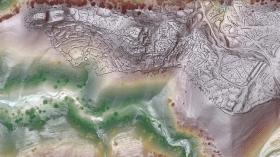Introduction
Acne is a common skin condition that affects millions of people worldwide. It is characterized by the formation of pimples, blackheads, and whiteheads on the skin, mainly on the face, back, and chest. Acne can be caused by various factors, including hormones, bacteria, and genetics. If you have acne-prone skin, it is essential to know the right steps to take to maintain a clear and healthy complexion. In this article, we will discuss the key measures you should take to care for acne skin.
1、Choose the Right Skincare Products
Selecting the appropriate skincare products is crucial for acne-prone skin. Look for gentle, non-comedogenic products that won't clog your pores. Some essential ingredients to look for in acne-fighting products include salicylic acid, benzoyl peroxide, and tea tree oil. These ingredients help to unclog pores, reduce inflammation, and kill acne-causing bacteria.
2、Maintain a Consistent Cleansing Routine
Cleaning your face twice a day, in the morning and evening, is essential for acne-prone skin. Use a gentle cleanser to remove dirt, oil, and makeup without stripping your skin of its natural moisture. Avoid using harsh scrubs or exfoliants, as they can irritate the skin and worsen acne.
3、Exfoliate Regularly
Exfoliating your skin 1-2 times a week can help to remove dead skin cells and unclog pores. This process allows your skincare products to penetrate more effectively and reduces the chances of breakouts. Choose a gentle exfoliant, such as a product containing salicylic acid or alpha hydroxy acids (AHAs), to avoid irritating your skin.
4、Use Oil-Free Moisturizers
Even if you have oily or acne-prone skin, it is essential to keep your skin hydrated. Look for oil-free, non-comedogenic moisturizers that won't clog your pores. These products will help to maintain your skin's natural moisture balance and prevent it from becoming overly dry or oily.
5、Avoid Touching Your Face
Touching your face frequently can transfer bacteria and oils from your hands to your skin, leading to breakouts. Make a conscious effort to keep your hands away from your face and avoid picking or popping pimples, as this can cause scarring and infection.
6、Manage Stress
Stress can trigger hormonal changes that contribute to acne breakouts. Find healthy ways to manage stress, such as exercise, meditation, or engaging in hobbies that you enjoy. Reducing stress levels can help to improve your overall skin health.
7、Maintain a Healthy Diet
A balanced diet rich in fruits, vegetables, whole grains, and lean proteins can contribute to better skin health. Some studies suggest that a diet high in refined sugars and dairy products may exacerbate acne. Experiment with your diet to see if any specific foods trigger breakouts and consider eliminating them from your diet.
8、Stay Hydrated
Drinking plenty of water throughout the day can help to flush out toxins and keep your skin hydrated. Aim for at least 8 glasses of water per day to maintain optimal skin health.
9、Protect Your Skin from the Sun
Sun exposure can cause skin damage and exacerbate acne. Use a broad-spectrum sunscreen with an SPF of at least 30 every day, even on cloudy days. This will help to protect your skin from harmful UV rays and prevent further breakouts.
10、Consult a Dermatologist
If your acne persists despite your best efforts, it may be time to consult a dermatologist. They can assess your skin and recommend appropriate treatments, such as prescription medications or in-office procedures, to help manage your acne.
Conclusion
Caring for acne-prone skin requires a combination of proper skincare, lifestyle changes, and sometimes professional intervention. By following the steps outlined in this article, you can take control of your acne and achieve a clearer, healthier complexion. Remember that consistency is key, and it may take some time to see significant improvements. Be patient and stay committed to your skincare routine for the best results.









Đăng thảo luận
2024-09-28 09:05:06 · 来自210.47.248.195回复
2024-09-28 09:15:22 · 来自139.208.32.226回复
2024-09-28 09:25:16 · 来自121.76.74.53回复
2024-09-28 09:35:10 · 来自210.25.121.205回复
2024-09-28 09:45:03 · 来自210.44.98.30回复
2024-09-28 09:55:07 · 来自123.233.243.132回复
2024-09-28 10:05:05 · 来自123.233.232.47回复
2024-09-28 10:15:07 · 来自61.234.253.24回复
2024-11-03 09:55:21 · 来自139.204.25.167回复
2024-11-03 10:05:34 · 来自139.210.103.196回复
2024-11-03 10:15:31 · 来自222.75.109.97回复
2024-11-03 10:25:29 · 来自222.50.229.115回复
2024-11-03 10:35:13 · 来自36.57.65.87回复
2024-11-03 10:45:21 · 来自36.58.146.81回复
2024-11-03 10:55:18 · 来自61.234.232.231回复
2024-11-03 11:05:30 · 来自210.43.122.234回复